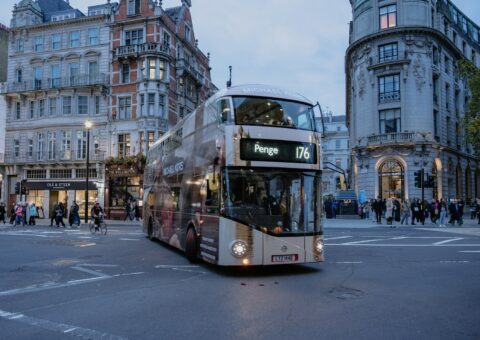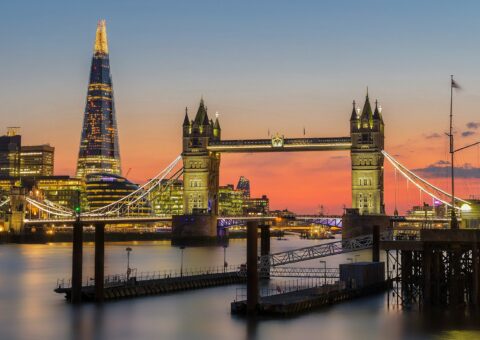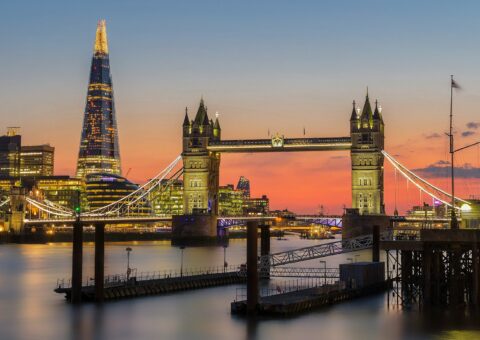Moving to London from the US: Essentials Tips For Relocation
Coming up: after-work drinks, family reunification, hipsters and hospitals, buying vs. renting, running clubs, a simple way to find a new home, and everything you need to know about relocating to London from the US.
You’re leaving the US.
You’re going to London.
Well, you’ve made a good choice: one of the planet’s most popular relocation hubs, over 300 languages are spoken in the city—and almost 40% of London’s residents were born outside the UK.
Perks of living in London include non-stop nightlife, endless things to do, great job opportunities, world-class levels of education, healthcare, and public transport, and lots of museums, theaters, pubs, and restaurants. It’s one of the most varied and exciting cities on the planet, and it’s good for families, couples, old people, young people, and solo relocators.
Add all this together, and it’s clear why relocating to London from the US is a relatively popular move—there are almost 250,000 US-born folks living in the UK.
But what type of visa will you need? How can you find an apartment? How do I get a job? What types of prices will I be paying? Is there any way to find a nice home while avoiding dodgy landlords? Where are the best pubs? And is cycling really as common as I’ve heard?
Coming up, all that and much more: today, Homelike are bringing you everything you need to know about moving to London from the US!
Moving to London from the US: Visas
- What kind of visa do you need?
If you’re relocating to London from the US for fewer than 6 months, you don’t need a visa. You simply turn up at the border, and get stamped in.
Note: during this six-month non-visa period, you cannot “do paid or unpaid work for a UK company.”
If you’re relocating for 6 months or longer, you do need a visa. There are a HUGE number of visas available, including those for work, study, business, seeking asylum, and more. Most people reading this will want a work visa. There’s more info on the UK’s official visa portal—and there are more than 20 types of work visas.
Some work visas, you need a job before you apply. For others, you don’t. Some job roles even have specific visas (like the ‘Health and Care Worker Visa,’ and the ‘Skilled Worker Visa’). Most UK work visas are valid for up to 5 years. Other types of visas have other durations.
Note: UK visas can be very hard to get. UK immigration rules are tough, and application processes can be complex and lengthy.
- How do I apply for a visa?
By using the link we just gave you above!
Choose the type of visa you want, click through all the information (most visas have multiple explanation pages—yawn), and the last page will feature an ‘apply now’ link.
This will take you to an online portal, where you enter all information and supply relevant documents. The website and portal are simple, but the process is time-consuming. You’ll need to provide documents including:
- Passport
- Bank statements, to prove either your income, or your savings (or both)
- Proof of your language skills (though if you’re migrating from the US, that probably won’t be a problem!)
- Sometimes, a criminal record check
You’ll also need to prove your identity (so the UK government knows you’re not a liar, a spy, or a criminal mastermind pretending to be someone else). There are typically two ways to do this:
- Attend an appointment at one of the official visa application centers
- Use the ‘UK Immigration: ID Check’ app
Expect the entire process to take 2-3 months.
- Work and resident permits
If you get a UK work visa, you are permitted to work in the UK for the duration of that visa. You don’t need to do a separate application for a separate work permit.
But, important note: residency is slightly different from a visa.
A visa allows you to stay in the UK for the duration of that visa, so long as you continue to fulfill the conditions of that visa (by working or studying or whatever). But residency allows you to stay in the country without having to fulfill any other conditions.
Getting residency in the UK is known as receiving “indefinite leave to remain” (also known as “settlement”).
Once you officially receive this settlement status, you don’t need to keep applying for visas, or meet any future conditions.
Usually, you need to have lived in the UK for 5-10 years to apply… or have a relative who has. There’s much more information on the official site.
- Bringing family members: dependent visas
As the official UK Family Visa portal says,
“You can apply for a family visa to live with your:
- spouse or partner
- fiancé, fiancée or proposed civil partner
- child
- parent
- relative who’ll provide long-term care for you”
Typically, your relative will apply for this visa outside of the UK—and if their visa is granted, they can then come and join you.
With most family visas, your relatives can work and study after receiving the visa.
Note: in the UK, your partner and children are considered “dependents”. And no dependents can live with you long-term without having received an official visa. Strict!
(for way more information on you and your kids, here’s our big fat guide on moving to London with family)

Finding Housing in London
- Best neighborhoods to live in London
After relocating to London from the US, you have almost 50(!) different neighborhoods to choose from.
… so, without having spent lots of time in the city, it’s hard to know where to live. But we’ve tried our very best to hold your hand and help you in our guide to the 15 best areas in London.
To sum up, some of our favorites are:
- Richmond: a green and serene area on the city’s western outskirts, it’s home to families, a village atmosphere, and a famous park with lots of wild deer.
- Kensington: a well-known middle-class district, Kensington offers big safety, bigger homes, and lots of schools. Expect high prices!
- Dalston: one of London’s most up-and-coming districts, you get street markets, new-build apartments, loads of young hipsters, and some affordable housing. And because it’s close to many business districts, it’s good for finding a job.
- Shoreditch: loads of young(ish) professionals live here. It offers startups, offices, coworking spaces, independent business, lots of pop-up food and drink, and a leftfield techy vibe.
- Soho: the city’s famous LGBTQIA+ district, this is a fun-packed area with cheap(ish) pubs, lots of jazz and live music, and a wide range of people and ages.
- Greenwich: right beside the office-packed Canary Wharf, Greenwich is one of the city’s top spots for finding a job. Other perks include riverside strolls, lots of museums, an observatory, and one of the city’s most view-packed parks.
- Brixton: brimming with Caribbean flair, Brixton is edgy and event-packed, and offers live music and hip hangouts. Expect food stalls, street-style eats, and lots of laid-back vibes.
- Renting vs buying after moving to London from the US
Well, that’s a tricky one.
Historically, UK home ownership is VERY popular—and people aged 50+ usually own their own home. But it’s slightly less common to own a home in London, especially given the hefty size of a down payment.
In the very-long-term, buying a London home is STILL cheaper than renting a London home.
“In 2023, the average price of a one-bed London flat was £352,254, with an associated mortgage payment of £1,524 per month. However, tenants renting a one-bed flat in the capital pay an average of £1,767 per month”
That said, you’ll need a 10% down payment, you have other costs to think about (like real estate fees, conveyancing fees, and the UK’s ‘Stamp Duty’), and you probably don’t yet know which part of the city you want to live in. So for now, renting is probably best.
- Websites should I use for finding a place to live
The UK’s two most popular real-estate websites for unfurnished apartments are Rightmove and Zoopla. Both offer rentals and sales.
If you want to live in a houseshare, your best option is the SpareRoom website.
But our favorite site for finding a place to live is… well… our site!
Why?
Because: when you first move to London, it’s tricky to find a place to live.
You don’t know where you want to live long-term, you don’t have any local contacts, you’re not familiar with the country, you don’t want to get ripped off, and you’re busy sorting and planning a million other things.
So, a simple solution: all our places are comfy and cozy, they’re ready to move into today, all utilities are covered in the cost of one fee, you don’t need to deal with any unreliable landlords, and you don’t need to sort out internet or utilities. We have short-term rentals in London, furnished rentals in London, and all types of serviced apartments in London. Sorted!
Rentals in London that meet your requirements
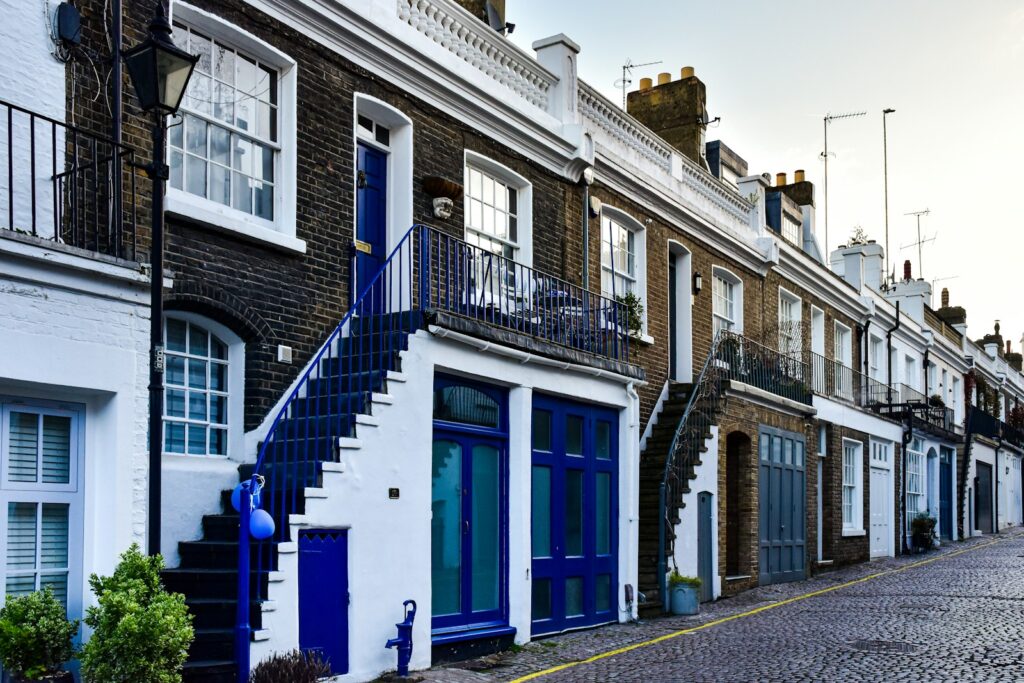
Moving to London from the US: Finding a Job
- Where to look for jobs in London
The UK’s best websites for finding jobs are Monster, Reed, CV-Library, Indeed, and LinkedIn. Recruitment agencies are also pretty popular—two of the biggest and best names are Adecco and Morgan Hunt.
- Work culture in London
After relocating to London from the US, you’ll find many differences between US work culture and UK work culture.
They include:
- US workers are more likely to be ‘go-getters,’ going the extra mile in their jobs, and sacrificing life for work. But in the UK, people usually just see a job as a way to get money—work culture is not centered around ‘going above and beyond.’
- UK holiday time is more generous: almost all UK workers receive 5.6 weeks’ paid holiday per year.
- UK people are more sarcastic and dry: you won’t find much enthusiasm (sincere or otherwise) here. People don’t pretend to be excited about their jobs.
- UK workers have informal relationships with their colleagues, and sometimes even their managers. It’s pretty common to go for after-work drinks with colleagues, especially in London.
- In the UK, work hours are as advertised. If you’re meant to work 9 ‘til 5, you will only work 9 ‘til 5. Your boss will rarely expect you to work extra unpaid time.
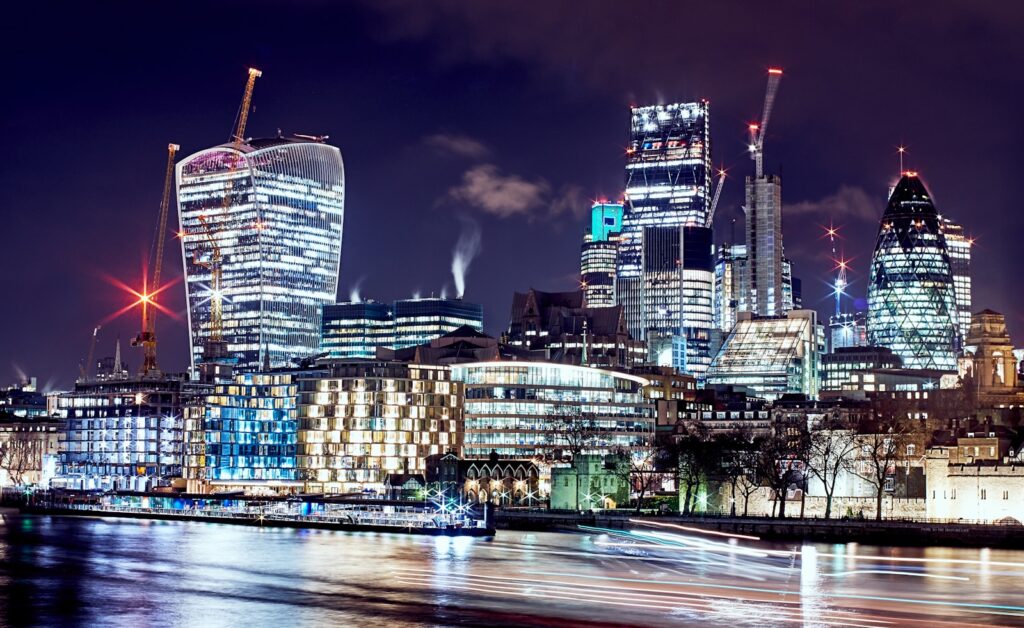
Relocating to London from the US: Opening Bank Accounts
- Which banks should I consider?
After relocating to London from the US, you’ll need a bank account.
The UK offers both physical traditional-style banks, and online-only banks. We recommend getting one of each—physical banks are more trusted and reliable, while it’s super quick and easy to get an account with an online-only bank.
The UK’s best online-only bank is Monzo, while two of the UK’s most popular ‘normal’ banks are Barclays and HSBC—both allow you to open an international account before you arrive in the UK.
Note: we’ve covered all these options and more in our guide to the 9 best banks for UK newbies.
- Which documents do I need to provide?
Usually:
- Your passport
- Proof of your address, like a utility bill, or a letter from some official body (as a non-native, you might need to provide two of these)
- Also as a non-native: proof of your visa status
Traditional branch-style banks pretty much always ask for the above. Online-only banks might only need one proof of address.
UK Healthcare
- The NHS
The UK’s National Health Service (NHS) is a publicly-funded sort-of-free healthcare scheme.
At the point of service (eg, when you see a doctor or get a diagnosis or have an operation), you don’t pay anything.
Instead, the service is paid for by taxes (well, it’s actually paid for by an insurance scheme included in your taxes, but let’s not get lost in the details). You must contribute to this system.
The vast majority of NHS healthcare is ‘free,’ although prescription pills and dental care are NOT covered.
Here’s how to become eligible for NHS healthcare after arriving in London. The main good news: you are immediately eligible for healthcare.
That said, new immigrants typically need to pay an upfront one-time ‘immigration health surcharge’ (IHS). You can expect to pay around £1,035 for each year that your visa is valid (you’ll pay this upfront; you won’t actually pay it on a per-year basis), but here’s a calculator for getting the specifics.
- Private health insurance
For better-than-NHS healthcare, you might want to go private.
With private healthcare, you get shorter waiting times, better care, and world-class facilities and professionals (UK private healthcare is some of the best in the world).
You can typically expect to pay just under £1,000 per year for private insurance. Most people get their UK private healthcare insurance with Bupa, AXA, or Aviva. There’s little difference between the three.
- Registering with a GP
In the UK, a ‘GP’ is a ‘general practitioner.’
Everyone is assigned a GP (a general doctor who works at a medical clinic close to your home).
In order to receive healthcare, everyone needs to have an assigned GP (even if you don’t actually see that GP as part of your treatment or diagnosis). So, soon after moving to London from the US, find your local healthcare clinic, and go speak to them.
If you have a small ailment or complaint, you’ll usually visit your GP. If you need further care, your GP will forward your needs onto the relevant professional. If you have an emergency, you don’t need to consult your GP before visiting the hospital.
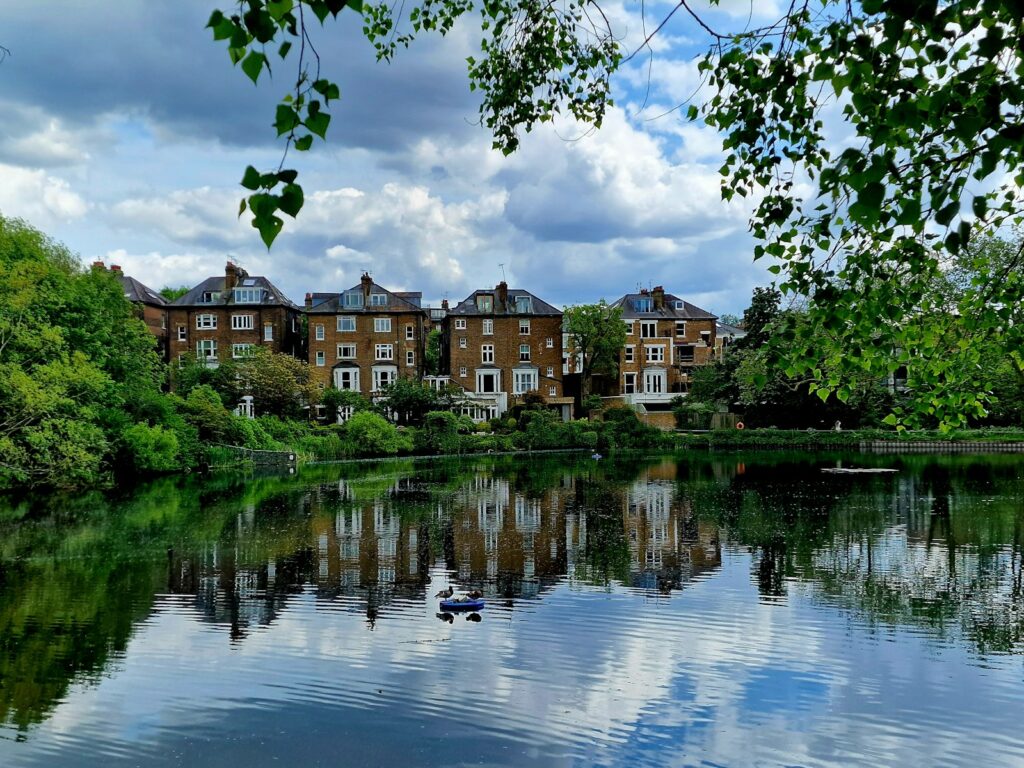
Education in London
- How schools work in London
In the UK, kids attend mandatory schooling from the ages of 4 (or 5), to 16.
Between 16 and 18, education is still mandatory, but it can take the form of academic school-style learning, or something vocational (like an apprenticeship).
If a child has the right to stay in the UK, they have the right to education (and are usually legally permitted to attend education). If you choose a state-supplied school (which are completely free to attend), your child’s school is allocated for you by the state.
Up to 33% of London’s kids attend private paid-for schools. You can pay to attend any school, no matter where you live. Annual fees usually range from £15,000 to £40,000 per year.
The vast majority of UK education is excellent, whether you pay for it or not.
- Are there any international schools?
After moving to London from the US, you’ll find almost 30 international schools.
Many are taught in English to an international crowd, while others are foreign-language schools teaching in French, Spanish, or Swedish.
- Higher education
Higher education is HUGELY popular in the UK—around 35% of UK residents go (or have gone) to university.
There are 166 universities in the UK, and around 40 of these are in London.
Higher education is paid for by the student, although grants and loans are available. Maximum annual tuition at a standard London university is £9,250.
Relocating to London from the US: Cost of Living
Here are some average costs:
- Monthly rent for a 1-bedroom apartment in a central area: £2,100
- Monthly rent for a 1-bedroom apartment in a not-central area: £1,600
- Monthly collated cost of typical utilities (gas, water, electricity, etc) : £291
- Typical home internet package (60 Mbps or more, unlimited data): £31
- One-way public transport ticket: £2.80
- Monthly pass for public transport: £200
- 1-month gym pass: £45
- 3-course meal for 2 people in a mid-range restaurant: £80
- One pint of domestic beer: £6.50
- Regular cappuccino in a cafe: £3.60
Transport in London
- Public transport
London’s world-class public transport is made up of:
- 272 underground stations
- 402 kilometers (250 miles) of underground networks
- 675 bus routes
- More than 9,000 buses
- Many overground rail services
- Trams, boats and taxis
You’ll rarely wait more than a few minutes for any type of transport.
The different types of transport are well-connected to each other, and you can reach all parts of the city without a car.
- Driving
If you want to get a car after relocating to London from the US, it’s bad news:
You cannot convert your US driver’s license to a UK one. So you’ll simply need to take a UK driving test, as if you’ve never driven before.
That said, you’re still allowed to drive for up to 12 months in the UK on your foreign license.
Remember: in the UK, people drive on the left-hand side of the road. So you might want to take a couple of lessons before you take your test.
- Cycling
The UK has a much bigger cycling culture than the US:
In London, around 1.2 million journeys are taken by bicycle every day.
Many of these cyclists have their own bike. Those who don’t; they use Santander Cycles—a city-wide network of 12,000 affordable and rideable public-share bikes. A day pass is only £3, and you can pick them up and drop them off in hundreds of different locations.
London’s cycling infrastructure is excellent: lots of cycle lanes, many traffic lights specifically for cyclists, and courteous and understanding drivers.

Legal Requirements and Documents
- Your National Insurance Number
After moving to London from the US, you’ll need a National Insurance Number.
A personalized 9-digit code, it ensures all your tax contributions and national insurance contributions (basically just another form of tax) are matched up with your name. Whenever you’re dealing with any type of work or tax admin, you’ll need to provide this number. Apply here.
- Tax obligations
If you’re a UK resident, you need to pay UK tax.
And the US has a uniquely weird attitude to their natives earning money elsewhere—if you’re from the US, but living, working and paying tax in some other country, you STILL need to pay US tax. Ouch.
That said, the UK-US ‘dual taxation exemption treaty’ means you don’t have to pay full taxes twice. Instead, what typically happens is: you pay your UK taxes in full, then your US taxes are adjusted according to the UK taxes you’ve already paid.
Other perks include double-taxation rules related to pensions and capital gains.
Important note: this is very complicated, and we’re not intelligent enough to understand it all (cos, you know, we’re housing experts, not finance people). So: speak to an accountant in the USA, AND an accountant in the UK. Here’s much more detail.
- Registering with local authorities
As of 2022, you usually don’t need to register with any local authorities (including the police) after relocating to the UK. Easy!
Moving to London from the US: Cultural Adjustment
- Cultural differences
Some cultural differences to expect:
- Unlike the US, the UK doesn’t really have a tipping culture. Around 10% is expected in restaurants, but no-one is going to shout at you for not leaving a tip. Tipping in cafes and bars is considered weird.
- People curse a lot more in the UK, and curse words usually aren’t considered outrageous.
- British people joke about everything, and social bonds are often formed around laughter, silliness, and poking fun at each other. Humor is often pretty dark.
- British people are much less enthusiastic than US people.
- Pub culture is BIG. Expect to spend a lot of time in pubs.
- English people are rarely patriotic. They’re more likely to be proud of their region.
- Getting involved in the community
After moving to London from the US, you’ll probably want to make some friends.
Well, London is the UK’s best place for it! Here are some tips and resources:
- Couchsurfing: a hospitality-exchange website where you’ll find events, city newbies, lifelong locals, and people who like to chat.
- Facebook: you’ll find many groups for expats, foreigners, and events.
- Events calendars are a good resource, like those at VisitLondon and TimeOut.
Look for clubs on Facebook. You’ll find clubs for running, language-learning, board games, cycling, and anything you can imagine.
Relocating to London from the US: Final Thoughts
Done!—that’s everything you need to know about moving to London from the US.
To sum up, it’s a pretty smooth process once you have your visa…
… but be careful about double taxation, and make sure you find the right neighborhood for you.
And another tip on finding a place to live:
Many newbies struggle to find a home in London. Some homes are shoddy, local landlords overcharge for subpar places, organizing bills and utilities can be a hassle, you have lots of competition, and you might not yet know which neighborhood you want to live in.
So if you’re struggling, move into one of our places. They’re comfy and cozy, they’re ready to move into today, they’re available short-term, and all utilities are already organized and included in one price.
But whichever place you wind up living in, we reckon you’ll love living in London.
Thanks for reading, thanks for choosing Homelike, and enjoy your brand-new UK life. See ya!




